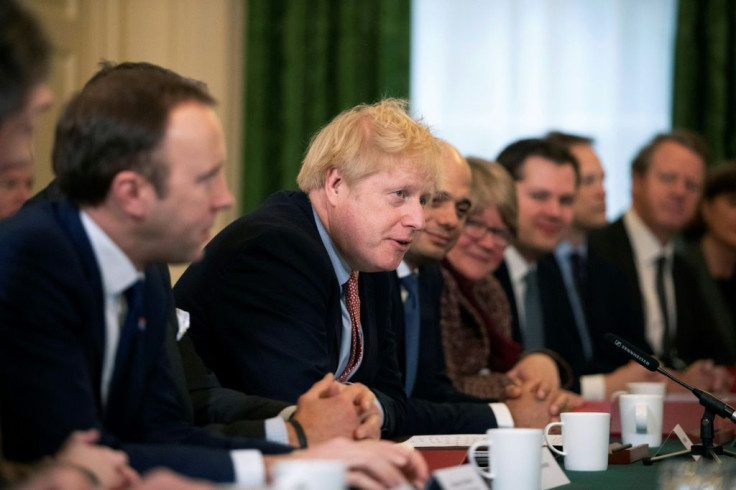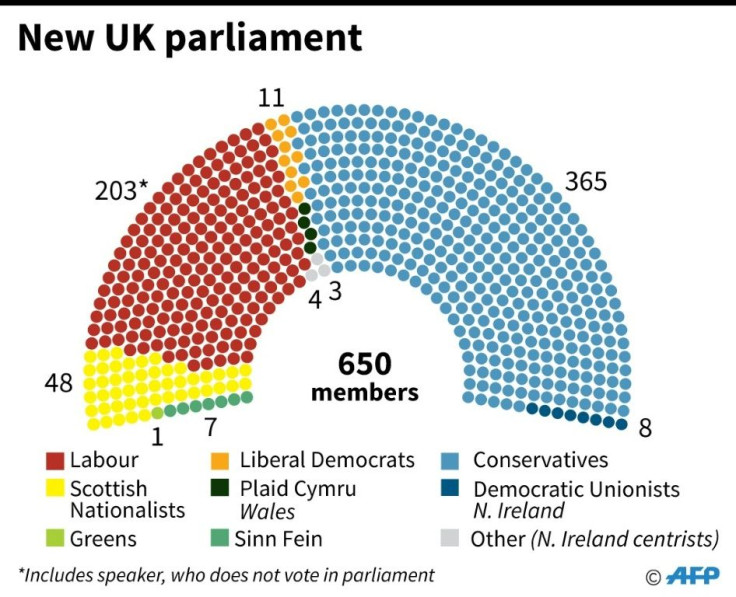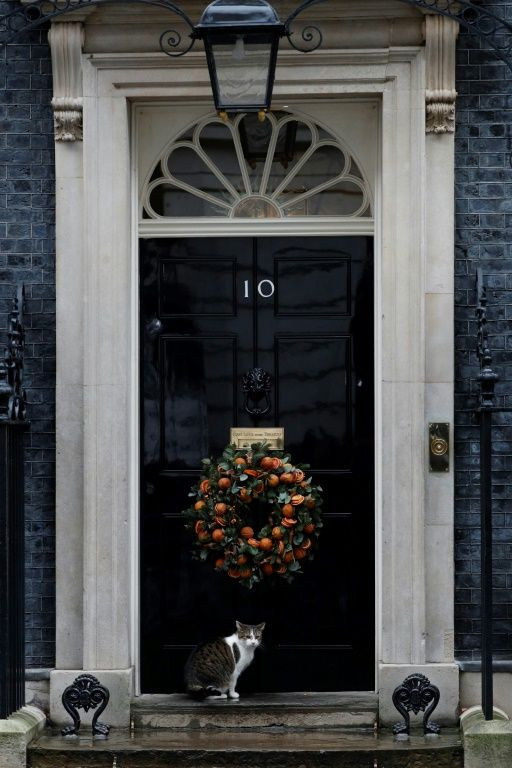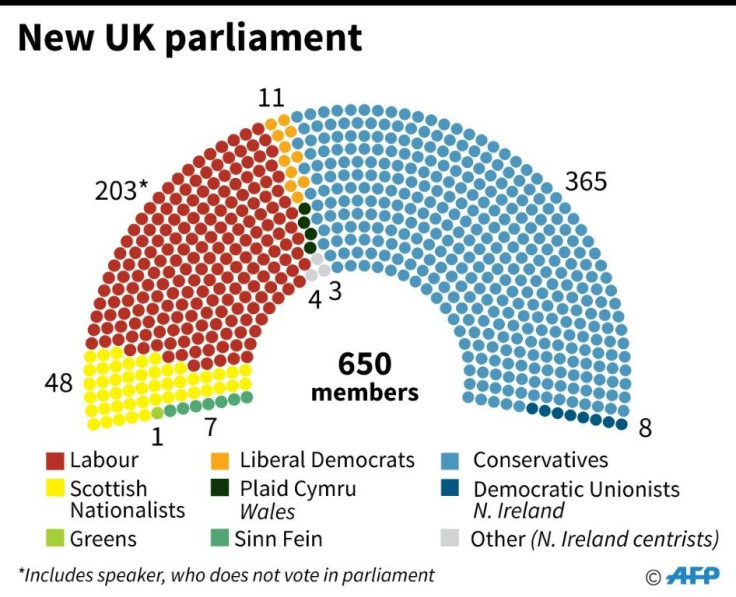UK PM Vows To Work 'Flat Out', Outlaw Brexit Transition Past 2020

Britain's government said Tuesday it will legislate to ensure a post-Brexit transition period does not extend beyond 2020, sending the pound sinking as the European Union warned of a race against time to agree new trade terms.
Prime Minister Boris Johnson won a big majority in Thursday's general election on a promise to "get Brexit done" by taking Britain out of the European Union by January 31.
A transition period will follow until December 31, 2020, during which London and Brussels hope to negotiate a new economic and security partnership to replace 46 years of integration.
Britain has an option to extend the transition but Johnson refuses to, and intends to enshrine the 2020 date in legislation, his office said Tuesday.
At his first cabinet meeting since the election on Tuesday, Johnson pledged to work "24-hours-a-day, flat out" to deliver on his election promises.
The EU's chief Brexit negotiator Michel Barnier said the bloc would "do the maximum" to try to agree a new partnership by the 2020 deadline, and avoid a highly disruptive "no deal" divorce.
But European Commission Vice President Valdis Dombrovskis warned that a "very rigid timeframe... reflects that certain things will be out of reach".

"It will be indeed rather problematic to hold negotiations and reach agreement on a comprehensive trade deal," he said.
The pound rose after Johnson's election on hopes of an end to years of political turmoil over Brexit, but fell Tuesday on fresh fears of a disorderly split.
By the late London afternoon, the currency was down by 1.7 percent against the dollar.

Johnson welcomed back his ministers after what he called a "seismic" result, telling them: "You ain't seen nothing yet."
As the House of Commons returned, he told MPs: "This parliament is not going to waste the time of the nation in deadlock, and division and delay.
"We are going to get Brexit done... and we are going to get on with delivering on the priorities of the British people."

Johnson won by taking a swathe of traditionally working-class seats in northern England, and has promised to address public concerns about health and education spending.
His self-styled "People's Government" said it would boycott next month's meeting of the world's global and political elites in Davos, Switzerland.
"Our focus is on delivering for the people, not champagne with billionaires," a government source told the Daily Mail tabloid.
MPs began being sworn in on Tuesday, and Queen Elizabeth II will set out the government's legislative programme on Thursday.
This includes the flagship Withdrawal Agreement Bill, which will enshrine in British law the terms of Britain's EU exit and is expected to have its first vote in parliament on Friday.
The bill will also "legally prohibit government agreeing to any extension" to the transition period, a Downing Street source said.
In a phone call with new European Commission President Ursula von der Leyen, Johnson agreed to start trade talks as soon as possible, London and Brussels said.
"We will meet at the beginning of 2020. The UK will always be a friend, partner and ally," von der Leyen tweeted.
Johnson's spokesman added: "Now, with absolute clarity on the timetable we're working to, the UK and the EU will be able to get on with it and have a great future relationship wrapped up by December 2020."
The spokesman confirmed Britain was still targeting a "Canada-style" free trade agreement with the EU, which is much looser than the relationship it currently has.
But a senior European diplomat in Brussels told AFP: "It will be bloody difficult to get a deal done and ratified in 11 months' time."
"Business has had enough of uncertainty and shares the prime minister's ambition for a fast EU trade deal," said CBI director-general Carolyn Fairbairn.
© Copyright AFP 2024. All rights reserved.





















